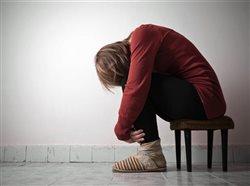
How to tell if someone needs inpatient drug treatment
(BPT) – It’s no secret that drug and alcohol abuse don’t pair well with a happy, productive and goal-oriented lifestyle. And even if it doesn’t escalate to an addiction, drug and alcohol use can still get in the way of one’s goals.
When a loved one shows signs of substance abuse, how do you know when it’s time to take a stand? Is residential treatment the best option? Pamela Anderson, executive director of A Forever Recovery, an addiction treatment center, offers her expertise on how to tell when someone you love might require a residential drug treatment plan:
Experiencing an overdose
‘In the past decade, the number of deaths due to drug overdose has increased dramatically, especially involving prescription drugs, according to The Michigan Automated Prescription System,’ says Anderson. Because of this, a state drug task force is recommending a shift in Michigan law to allow for over-the-counter sales of an injectable drug, Vivitrol, that can help prevent relapse to opioid dependence after detox. Vivitrol is a long-acting formula that only needs to be administered once a month. ‘But if someone needs this drug to prevent a relapse, it’s also a sure sign they need residential treatment,’ she continues.
Low motivation levels
Addiction treatment programs are offered on a voluntary basis, allowing people to drop out at any time. People often don’t feel like they need to recover and only turn to outpatient care as a way to make it seem like they’re getting better. But if they end up relapsing, inpatient care is a solution for the second attempt at recovery, providing more supervision and lessons that outpatient care can’t teach.
No safe place to recover
The essentials for a complete recovery include a drug-free environment, regular nutritious meals, transportation to appointments and a supportive environment. Even if someone was to undergo outpatient care, they may not have access to all these key aspects. A residential care facility offers a safe space to get back on track.
Signs of physical illness
Addictions have a serious effect on a person’s physical health. When someone struggles with addiction in combination with a physical condition, the road to recovery is winding and long. These types of patients would benefit from an individual approach to overcoming addiction in an inpatient setting.
Loss of jobs and relationships
When drug use starts to affect a person’s responsibilities and relationships, it becomes a major issue. Substance abuse puts up a barrier between friends and family members, while late nights and hangovers put people at risk of missing work or school. Substance abuse also costs a lot of money, draining bank accounts or worse, leading someone into debt.
Continued relapse
If you’ve heard the phrase, ‘I promise, I’ll quit,’ way too many times, it may be a sign that residential treatment is necessary. When the person of concern assures you they’ll quit, but continues to relapse and make excuses, it’s time for a better approach. Continued professional care may be their only hope.
Knowing the signs of a serious addiction is the first step to helping your loved one on the path towards recovery. To learn more about residential treatment facilities, visit aforeverrecovery.com.


